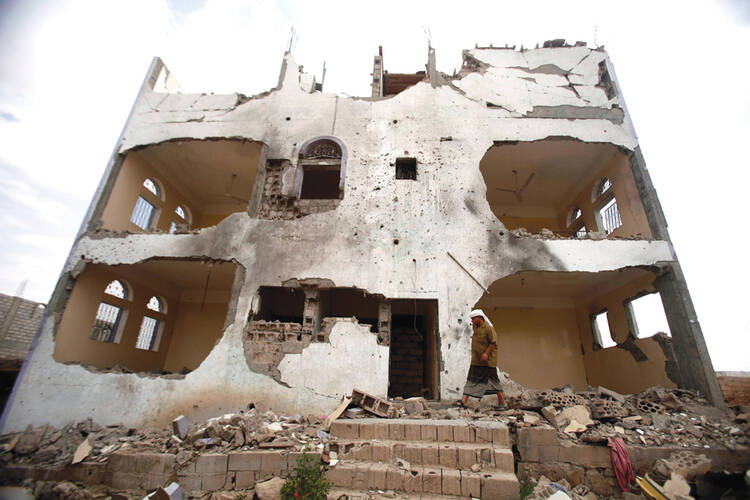American drone policy and the phenomenon of “targeted killing” came under intense scrutiny in October when critical assessments were issued by independent human rights groups and in a report issued by the United Nations.
On Oct. 22, the New York-based group Human Rights Watch flatly denounced the drone campaign in Yemen where, it charged, U.S. airstrikes against “alleged terrorists have killed civilians in violation of international law.” The group argues that the U.S. drone and missile strikes “are creating a public backlash that undermines U.S. efforts against Al Qaeda in the Arabian Peninsula.” Amnesty International went even further. It charged that new evidence indicates that the United States has carried out unlawful killings in Pakistan through drone attacks, “some of which could even amount to war crimes” or extrajudicial executions.
“We are reviewing these reports carefully,” said Jay Carney, the White House spokesperson. “To the extent these reports claim that the United States has acted contrary to international law, we would strongly disagree.”
The H.R.W. report examined six targeted killings in Yemen. The group charges that two of the strikes killed civilians indiscriminately in “clear violation of the laws of war” and found that others may have targeted people who were not legitimate military objectives or caused disproportionate civilian deaths. “Yemenis told us that these strikes make them fear the United States as much as they fear Al Qaeda,” said Letta Taylor, a senior researcher at Human Rights Watch and the author of the report.
Amnesty International reviewed all 45 known drone strikes between January 2012 and August 2013 in North Waziristan, a region in northwestern Pakistan. In October 2012, Mamana Bibi, a 68-year-old grandmother, was killed in a double strike as she picked vegetables in the family’s fields accompanied by some of her grandchildren. And in July 2012, 18 laborers, including a 14-year-old boy, were killed in multiple strikes on an impoverished village close to the border with Afghanistan as they prepared for an evening meal.
Contrary to official claims that those killed were “terrorists,” Amnesty International’s research indicates that the victims of these attacks were not involved in fighting. “There are genuine threats to the U.S.A. and its allies in the region, and drone strikes may be lawful in some circumstances, but it is hard to believe that a group of laborers or an elderly woman surrounded by her grandchildren were endangering anyone at all, let alone posing an imminent threat to the United States,” said Mustafa Qadri, Amnesty International’s Pakistan researcher. “We cannot find any justification for these killings.”
In yet another review, the U.N. special rapporteur on human rights and countering terrorism, Ben Emmerson, issued an interim report on Oct. 17. He argued that absent an armed conflict, drone strikes would “rarely be lawful” because of the restrictive use of force rules in human rights law.
Like the other reports, the U.N. interim report faulted U.S. oversight of its drone campaign because of its lack of transparency, resistance to accountability and failure to investigate the outcomes of strikes and maintain accurate casualty records. But it also found that when used in “strict compliance” with humanitarian law, drones can reduce civilian casualties by “improving situational awareness.” In Yemen, according to the report, the United States engaged in an “apparent effort to minimize civilian loss of life.”
The “single greatest obstacle” to assessing the impact of targeted killing on civilians is the lack of transparency, leading to “an accountability vacuum” and reducing the ability of victims to seek redress, according to the report. Emmerson urged the United States to clarify its position on the legal and factual issues and to release its own data on the level of civilian casualties.








